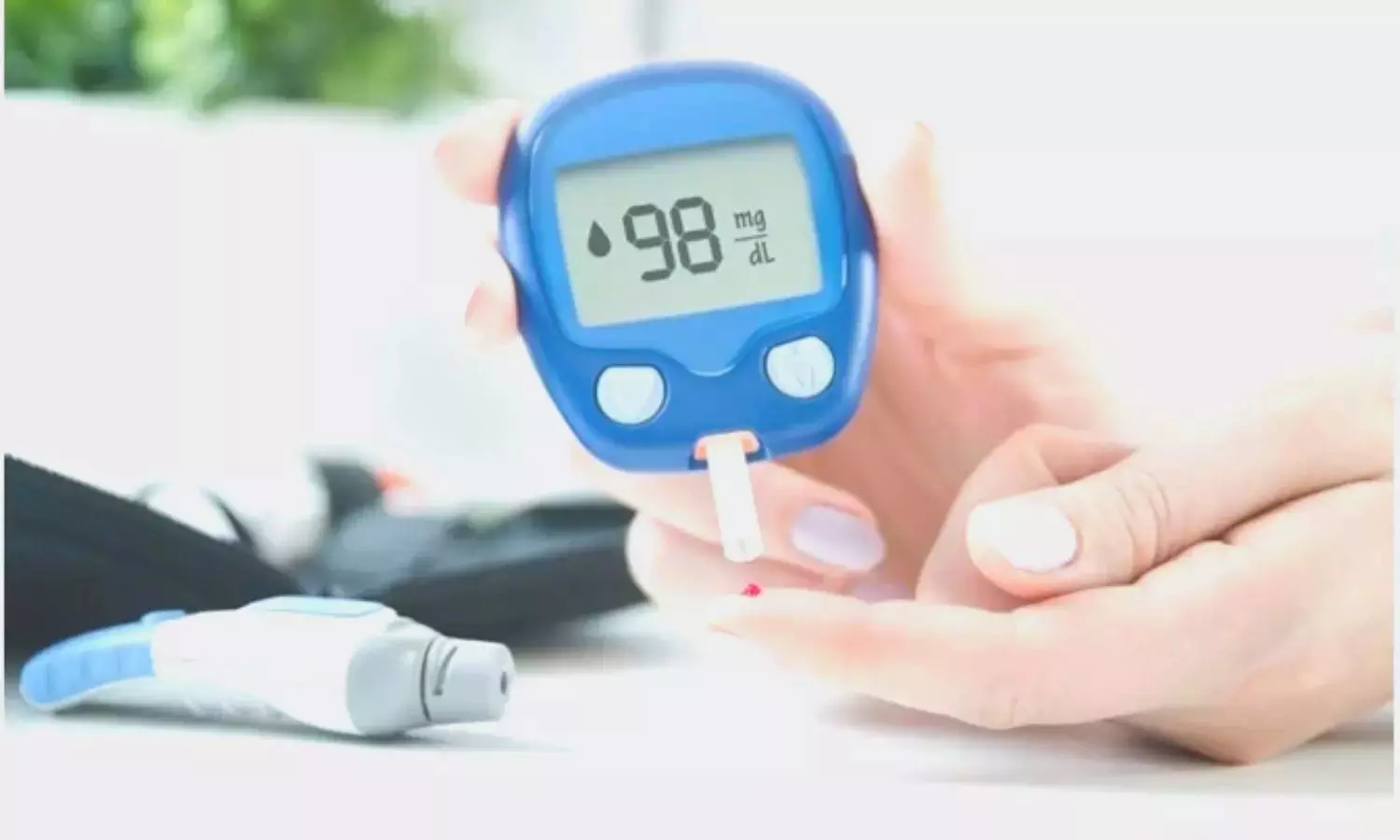- Home
- Medical news & Guidelines
- Anesthesiology
- Cardiology and CTVS
- Critical Care
- Dentistry
- Dermatology
- Diabetes and Endocrinology
- ENT
- Gastroenterology
- Medicine
- Nephrology
- Neurology
- Obstretics-Gynaecology
- Oncology
- Ophthalmology
- Orthopaedics
- Pediatrics-Neonatology
- Psychiatry
- Pulmonology
- Radiology
- Surgery
- Urology
- Laboratory Medicine
- Diet
- Nursing
- Paramedical
- Physiotherapy
- Health news
- AYUSH
- State News
- Andaman and Nicobar Islands
- Andhra Pradesh
- Arunachal Pradesh
- Assam
- Bihar
- Chandigarh
- Chattisgarh
- Dadra and Nagar Haveli
- Daman and Diu
- Delhi
- Goa
- Gujarat
- Haryana
- Himachal Pradesh
- Jammu & Kashmir
- Jharkhand
- Karnataka
- Kerala
- Ladakh
- Lakshadweep
- Madhya Pradesh
- Maharashtra
- Manipur
- Meghalaya
- Mizoram
- Nagaland
- Odisha
- Puducherry
- Punjab
- Rajasthan
- Sikkim
- Tamil Nadu
- Telangana
- Tripura
- Uttar Pradesh
- Uttrakhand
- West Bengal
- Medical Education
- Industry
Lowest and highest levels of fasting stress hyperglycemia may increase contrast-induced AKI among patients undergoing PCI

China: A recent study has revealed a significant association between both the highest and lowest levels of fasting stress hyperglycemia ratio (SHR) and an increased occurrence of contrast-induced acute kidney injury (CI-AKI) in patients undergoing coronary angiography (CAG) or percutaneous coronary intervention (PCI).
The findings published in Frontiers in Endocrinology showed that the correlation was observed regardless of whether the patients had diabetes or HbA1c > 6%.
Coronary artery disease (CAD) imposes a significant global disease burden and is a prominent contributor to human mortality on a global scale. Recently, there has been a significant improvement in the clinical prognosis of CAD patients with the widespread application of intervention techniques such as percutaneous coronary intervention and coronary angiography in the diagnosis and treatment of CAD. However, the use of these interventions is tied to a series of related complications that cannot be overlooked due to their effect on patient health.
Stress hyperglycemia ratio is an emerging indicator of critical illness, and exhibits a significant association with adverse cardiovascular outcomes. Yu Shan, Zhejiang University, Hangzhou, Zhejiang, China, and colleagues aimed to evaluate the association between fasting SHR and contrast-induced AKI in a cross-sectional study comprising 3,137 patients who underwent CAG or PCI.
Fasting SHR was calculated by dividing the admission of fasting blood glucose by the estimated mean glucose obtained from glycosylated haemoglobin. Contrast-induced acute kidney injury was evaluated based on elevated serum creatinine (Scr) levels.
The relationship between fasting SHR and the proportion of serum creatinine elevation was investigated using piecewise linear regression analysis. The correlation between fasting SHR and CI-AKI was evaluated through Modified Poisson’s regression analysis. Sensitivity analysis and subgroup analysis were conducted to explore result stability.
The researchers reported the following findings:
- Among the total population, 15.4% of patients experienced CI-AKI.
- Piecewise linear regression analysis revealed significant associations between the proportion of SCr elevation and fasting SHR on both sides (≤ 0.8 and > 0.8) [β = -12.651, β = 8.274].
- The Modified Poisson’s regression analysis demonstrated a statistically significant correlation between both the lowest and highest levels of fasting SHR and an increased incidence of CI-AKI [(SHR < 0.7 versus 0.7 ≤ SHR < 0.9) β = 1.828 (SHR ≥ 1.3 versus 0.7 ≤ SHR < 0.9) β = 2.896], which was validated further through subgroup and sensitivity analyses.
"In populations undergoing PCI or CAG, both the lowest and highest levels of fasting SHR were significantly associated with an increased occurrence of CI-AKI," the researchers concluded.
The researchers emphasized that this study solely encompassed the Chinese population, thus requiring further investigation to ascertain the generalizability of these findings to other populations in different countries.
Reference:
Shan, Y., Lin, M., Gu, F., Ying, S., Bao, X., Zhu, Q., Tao, Y., Chen, Z., Li, D., Zhang, W., Fu, G., & Wang, M. (2023). Association between fasting stress hyperglycemia ratio and contrast-induced acute kidney injury in coronary angiography patients: A cross-sectional study. Frontiers in Endocrinology, 14, 1300373. https://doi.org/10.3389/fendo.2023.1300373
MSc. Biotechnology
Medha Baranwal joined Medical Dialogues as an Editor in 2018 for Speciality Medical Dialogues. She covers several medical specialties including Cardiac Sciences, Dentistry, Diabetes and Endo, Diagnostics, ENT, Gastroenterology, Neurosciences, and Radiology. She has completed her Bachelors in Biomedical Sciences from DU and then pursued Masters in Biotechnology from Amity University. She has a working experience of 5 years in the field of medical research writing, scientific writing, content writing, and content management. She can be contacted at editorial@medicaldialogues.in. Contact no. 011-43720751



